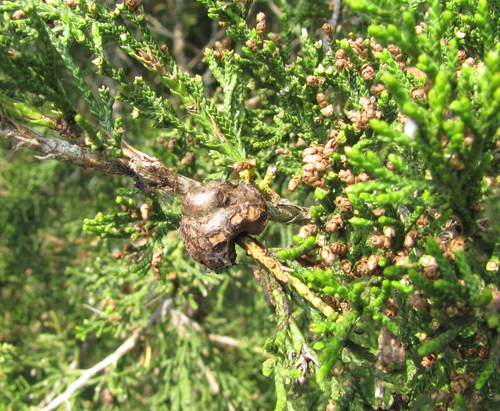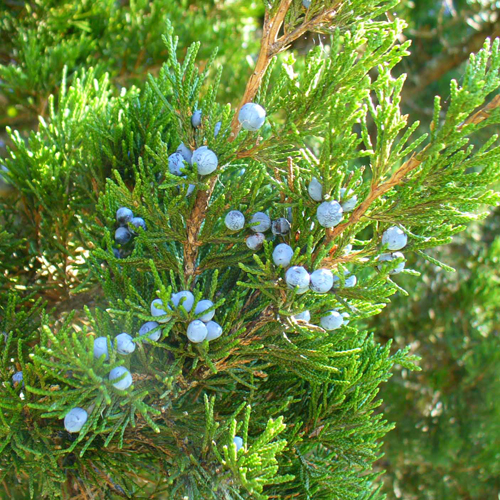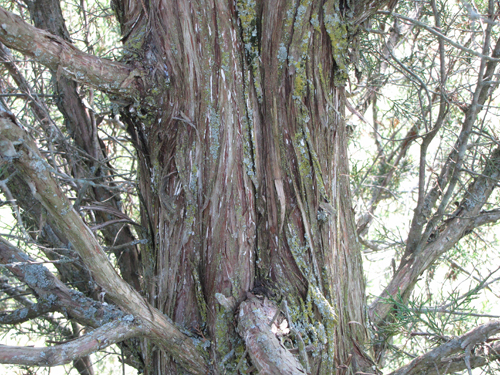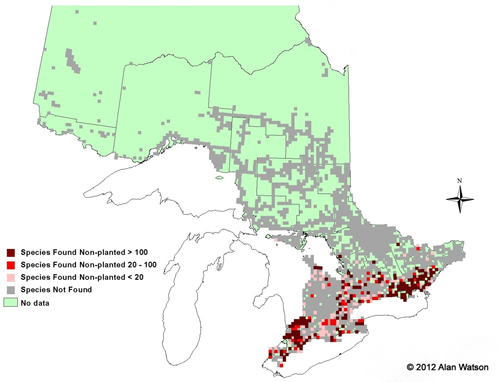eastern red cedar
eastern red cedar - Juniperus virginiana
The eastern red cedar is actually a juniper, and resembles the eastern white cedar only in name. The reddish wood was once the main source for wooden pencils, and is still a popular choice for detailed work such as trims and window sills. The “berry-like” cones are an important source of food for many game-birds as well as songbirds, and the foliage provides shelter for many species.

Eastern red cedar needles are quite sharp on young branches and become flat and spreading on mature branches. This photo shows a cedar-apple rust gall that has formed on one of the young branches. Photo by Chris Earley.

The cones are a deep blue and resemble berries. Seed-eating birds help to distribute the seeds found in the cones – it is common to find isolated patches growing along important bird migration routes! Photo by Sean Fox.

The bark of the Eastern red cedar grows in narrow strips. The aromatic reddish wood repels many insects such as moths, which is why cedar trunks are commonly used to store wool materials. Photo by Chris Earley.

Ontario Tree Atlas map of non-planted Eastern Red Cedar. 1995-1999.
References
Farrar, J.L.. 1995. Trees in Canada. Fitzhenry & Whiteside Ltd. Toronto. ON. 504 pp.
Kershaw, L. 2001. Trees in Ontario: Including tall shrubs. Lone Pine Publishing. Edmonton. AB. 240 pp
Muma, W. 2011. Ontario Trees and Shrubs. [Online] Available: www.ontariotrees.com
OMNR, 2011. Ontario Ministry of Natural Resources: Ontario Tree Atlas. [Online] Available: http://www.mnr.gov.on.ca/en/Business/ClimateChange/2ColumnSubPage/267027.html
OMNR, 2008. Ontario’s Biodiversity: Species at Risk.